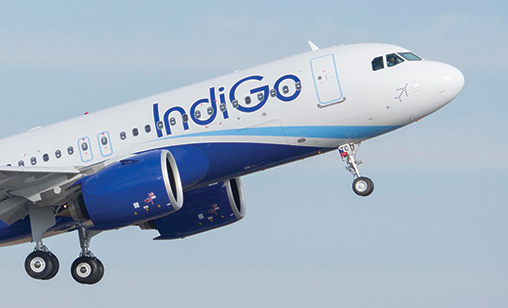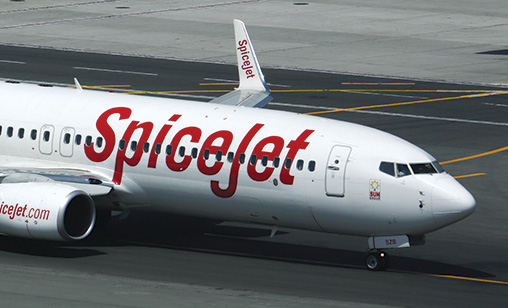News Backgrounder
Profits plummet in India as fuel prices rise
June 1st 2018
Profits at India’s commercial carriers are falling through the floor as oil prices rally. Read More » All airlines face increased pressure on revenue when oil goes on an upward trajectory, but India’s airlines suffer more than most carriers in the Asia-Pacific because of the Indian government’s taxes on fuel. As a rule of thumb, fuel accounts for 35%-40% of airline costs even in a period of low oil pricing.
At press time, Brent crude was trading at US$75.35 per barrel, down from $79.54 a barrel on 17 May but still $22.35 per barrel higher than three weeks ago. The oil price recovery has led to a corresponding increase in India’s domestic aviation turbine fuel (ATF) prices, to Rupees 65,340 per kiloliter from Rupees 50,700 per kilometer. USD$100 million equals Rs 670 crore.
 |
 |
Indian airlines always struggle to get the customer to pay for additional operating expenses because of the fiercely competitive nature of Indian commercial aviation. A reminder of this harsh reality is Kingfisher Airlines. The final nail in its coffin was fuel it could not afford. It went bankrupt and closed in 2012.
Signs of this strain are visible at India’s airlines. IndiGo is the country’s largest airline with a fleet of 160 and orders for almost 400 more. In the quarter to March 31 this year, the LCC reported a profit decline of 74% and a yield fall of 5.6%.
“We believe current low yields are unsustainable. Yield improvement in an environment where fuel costs are high remains a key monitorable,” HDFC Securities’s Madhukar Ladha, said in a May report. He added IndiGo’s earnings were a disappointment.
To reduce fuel expenditure, Gurgaon headquartered IndiGo has been inducting A320neos into its fleet, despite several engine glitches, to reduce its fuel bill. The airline has accepted 32 of the type, but the induction process was slowed in March when the Directorate General of Civil Aviation (DGCA) instructed the low-cost carrier to ground almost a dozen planes because of reports of multiple engine failures.
IndiGo is receiving undisclosed compensation from engine manufacturer, Pratt & Whitney, for the geared turbo fan engine problems, but the funds are not sufficient to restore profits at a carrier with a very large high frequency network that operates a model of fast aircraft turnaround and maximum daily usage of its fleet.
Taking planes out of service at short notice also has had an impact on IndiGo’s revenue management model. It is understood it has had to accommodate passengers from grounded A320neo flights on its existing flights which has limited its ability to sell its last minute, and most expensive, tickets.
Budget carrier rival, SpiceJet, which flies 37 B737NGs and 22 Bombardier Q-400s, has proved more adept at handling the fuel price increase. It has reported a 5% yield improvement despite the rising oil price.
“The divergence in yield can be attributed to IndiGo’s endeavor to maintain high load factors against a backdrop of significant capacity addition,” JM Financial Institutional Securities Ltd said in a note last month. Both SpiceJet and IndiGo results could have been worse had it not been for “other incomes” that typically mean credits, interest from financial deposits and mutual funds, it said.
AirAsia India’s operating loss has more than doubled recently, from 40.49 crore to Rs 97 crore, a result the carrier said was “largely due to the increase in aircraft fuel expenses and aircraft maintenance” costs. AirAsia operates an all Airbus fleet of 18 A320s.
Jet Airways, the country’s oldest private airline and an operator of 119 airplanes, posted unexpectedly bad results for the first three months of the year. It slipped into a full year loss of Rs 636 crore from a profit of Rs 1499 crore in the previous year. Jet Airways stock was punished by investors and is trading at a 52-week low.
“Financial performance during the quarter was weaker due to the continuing increase in the price of Brent fuel without a corresponding increase in air fares, as well as mark-to-market adjustments from a weaker rupee,” Jet Airways CEO, Vinay Dube, said in a results statement.
Air India, Vistara and GoAir have yet to announce their results.